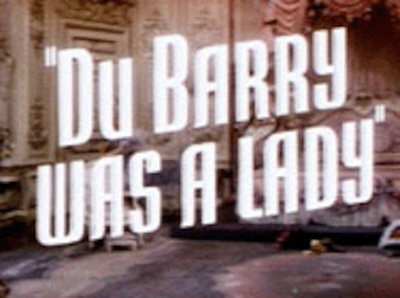Du Barry Was a Lady

Brief Synopsis
Cast & Crew
Roy Del Ruth
Red Skelton
Lucille Ball
Gene Kelly
Virginia O'brien
"rags" Ragland
Film Details
Technical Specs

Synopsis
Although both coatroom attendant Louis Blore and songwriter and emcee Alec Howe are in love with Club Petite singer May Daly, she claims to be interested only in rich men, such as her devout admirer Willie. After Alec sings her a touching love song he has just written, however, May admits that she loves him, sending him into a joyous frenzy. Alec's happiness is shortlived as, moments later, May tells him that she is still marrying for money to avoid ending up like her poor, broken parents. Alec condemns May's stubborn pragmatism and storms out of her dressing room, aware that she is going out with Willie. To help his friend, fortune-teller Rami the Swami causes Cheezy, a waiter at the nightclub, to dump salad on Willie's head. May sends the drenched Willie home and leaves the club by herself, but is soon joined by the lovestruck Louis. On the way home, Louis fawns over May, but she is too confused about her romantic situation to be flattered by his attentions. Later, at the club, dimwitted telegraph messenger Charlie gives Louis a telegram informing him that he is the winner of the $150,000 Irish sweepstakes. Once over his initial shock, Louis goes on a spending spree and declares to a radio reporter that he is marrying "DuBarry," the character May portrays in her nightclub act. Louis' statement is also reported in the newspapers, and when May sees it, she is surprised and flustered. Alec, too, sees the announcement and challenges May to accept Louis' proposal. To spite Alec, May tells Louis, who has rented the club for the night in order to celebrate his windfall, that she will marry him, but makes sure he understands that she is only interested in his money. When Alec learns about May's engagement, he accuses Louis of being a fool, prompting May to slap him and run off. Charlie, who has taken over Louis' cloak room job, suggests that Louis slip Alec a "mickey" to disable him for a few days. Louis relucantly agrees, but accidentally drinks the drugged cocktail and collapses on the club floor. While he is unconscious, Louis dreams that he is seventeenth century French king Louis XV, and that May is his lover, Mme. Du Barry. Although he is aided in his pursuit of Mme. Du Barry by Charlie, who has been transformed into his son, the Dauphin, Louis soon discovers that she is attracted to The Black Arrow, Alec's dream persona, a rebel leader. The Black Arrow has condemned Mme. Du Barry for encouraging Louis to plunder the treasury in order to buy her extravagant gifts, but she is nonetheless smitten with him. The Black Arrow's rebel army is thwarted when the prime minister, the Duc de Rigor, who resembles Willie and has been jealously spying on Du Barry, orders the king's soldiers to intercept them near Louis' palace. Over protests from the duke, Louis insists that The Black Arrow be given a fair trial, then condemns his rival to death in court. As The Black Arrow is being led to the guillotine, Mme. Du Barry begs Louis to spare him, vowing never to see the rebel again if he does. Louis agrees, but before the execution can be stopped, the duke reveals that he is in love with Mme. Du Barry and engages Louis in a sword fight. A superior swordsman, the duke chases the king around the palace and is about to deliver the fatal stab when Louis wakes from his dream. Once recovered, Louis tells Alec that he deserves May more than he and offers them $10,000 as a wedding gift. After the reformed May turns down the money, declaring that she and Alec are "starting from scratch," Mr. Jones, the tax collector, demands that Louis hand over $80,000, and Louis is a poor man once again.

Director

Roy Del Ruth
Cast

Red Skelton

Lucille Ball

Gene Kelly

Virginia O'brien

"rags" Ragland

Zero Mostel
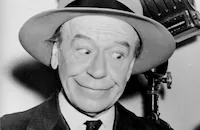
Donald Meek

Douglass Dumbrille

George Givot

Louise Beavers
Tommy Dorsey
Buddy Rich
Ziggy Elman
The Pied Pipers
Jo Stafford

Dick Haymes
The Three Oxford Boys
Six Hits And A Miss
Music Maids
Earl Covert
J. D. Jewkes
Harry Stanton
Virginia Rees
Faith Kruger
Allan Watson
Charles Coleman

Cecil Cunningham
Harry Hayden
Clara Blandick
Andrew Tombes

Kay Aldridge

Pierre Watkin
Don Wilson

Sig Arno
Ernie Alexander
Hugh Beaumont
William Forrest
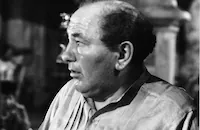
Charles Judels
Chester Clute
Michael Visaroff
Gene Ramey
William Costello
Dell Henderson
Edward Cooper
Thomas Clarke
Emmett Casey
Christian J. Frank
Emory Parnell
Mitchell Lewis
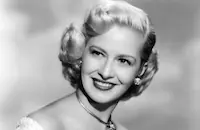
Marilyn Maxwell
Kay Williams
Aileen Haley
Hazel Brooks
Georgia Carroll
Eve Whitney
Inez Cooper
Ruth Ownbey
Dorothy Haas
Natalie Draper
Theo Coffman
Mary Jane French
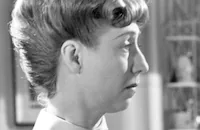
Marie Blake
Dick Alexander
Art Miles
Paul Newlan
Jack Byron
Crew
Leo Arnaud
George Bassman
Irving Brecher
Lew Brown
Jack Dawn
Roger Edens
Roger Edens
Arthur Freed
Ralph Freed
Karl Freund
Cedric Gibbons
Henry Grace
Nancy Hamilton
E. Y. Harburg
Irene
Henri Jaffa
Natalie Kalmus
Harold Kress
Burton Lane
Wilkie Mahoney
Martha Mears
Warren Newcombe
Sy Oliver
Cole Porter
Merrill Pye
Blanche Sewell
Douglas Shearer
Shoup
Gile Steele
Georgie Stoll
Axel Stordahl
Marvin Stuart
Charles Walters
Keith Weeks
Edwin B. Willis

Photo Collections
Film Details
Technical Specs

Articles
Du Barry Was a Lady
In casting the two leads, played onstage by Bert Lahr and Ethel Merman, MGM substituted Red Skelton and Lucille Ball. Third-billed Gene Kelly, in his third MGM film, is the guy who winds up with the showgirl at the film’s end. One of the movie’s main attractions is the sight of Tommy Dorsey and his band, including drummer Buddy Rich, performing in 18th-century costumes and powdered wigs. A young stage performer named Zero Mostel makes his movie debut, and the film also is enlivened by appearances by rising MGM star Lana Turner (in a cameo) and starlet Ava Gardner (in a bit as a Vargas calendar model).
The Porter songs retained in the movie include "Do I Love You?," which provided Kelly with an outstanding dance number; "Katie Went to Haiti" by Dorsey and his band; and "Friendship," shared by Skelton, Ball and Kelly.
Du Barry Was a Lady was Ball’s first movie as a star at MGM, which had just bought her contract from RKO. In her autobiography, Love, Lucy, she wrote that one of the great pleasures for her was getting to know Skelton, whom she described as "a very sad clown... Something about him is just inescapably poignant." Ball wrote that most of the action in Du Barry "consisted of Red in satin knee breeches chasing me around a big double bed. We practiced for days on a trampoline, which made me acutely seasick." Ball wrote that a New York reviewer commented of her Du Barry performance that she had become "a musical-comedy star of the first magnitude." She failed to mention, however, that her singing for the movie was dubbed by Martha Mears.
It was Du Barry that gave the actress her "Lucille Ball" look. MGM hairstylist Sydney Guilaroff dyed her already-red hair a more vibrant tone for Technicolor called "Tango Red," described by Ball as being "as orange as a piece of fruit hanging on a tree," and an upswept hairstyle so heavily lacquered that the actress swore she had "to take the crust off it at night by cracking it with a brush." Her makeup also was changed to feature a "scarlet, four-cornered mouth." Studio designer Irene also contributed to Ball’s flamboyant new image by putting her in colors that, according to Ball, were so "vivid I felt like a sunburst, a prism, a tropical bird of paradise."
Producer: Arthur Freed
Director: Roy Del Ruth
Screenplay: Irving Brecher, Nancy Hamilton, Wilkie Mahoney, from play by Buddy DeSylva and Herbert Fields
Cinematography: Karl Freund
Editing: Blanche Sewell
Art Direction: Cedric Gibbons
Costume Design: Irene, Gile Steele
Original Music: Cole Porter, Daniele Amfitheatrof, Frances Ash, Walter Donaldson, Burton Lane, Ned Washington Principal Cast: Red Skelton (Louis Blore/King Louis XV), Lucille Ball (May Daly/Madame Du Barry), Gene Kelly (Alec Howe/Black Arrow), Virginia O’Brien (Ginny), Rags Ragland (Charlie/Dauphin), Zero Mostel (Rami, the Swami/Taliostra).
C-101m. Closed captioning.
by Roger Fristoe

Du Barry Was a Lady
Quotes
(Singing) Tra-la-la-la-la-la-la-la you've come to wash my face!- King Louis XV
(Singing in return) Tra-la-la-la-la-la-la-la we've come to wash your face!- Maids
Trivia
Notes
Music orchestrator Axel Stordahl's name was misspelled in the opening credits as "Alec." The Herbert Fields, B. G. DeSylva and Cole Porter Broadway musical starred Bert Lahr and Ethel Merman. Many reviewers commented on the fact that, to make the play acceptable to the MPPA, Lahr's part was changed from a men's bathroom attendant to a cloak room attendant, and all the "bathroom" humor was deleted. Dance director Charles Walters appeared in the Broadway show as "Alec." Modern sources note that Du Barry Was a Lady was first considered as a screen vehicle for Mae West. In 1941, RKO competed with M-G-M for the screen rights to the play, intending it as a vehicle for Ginger Rogers, according to modern sources. M-G-M finally won the rights by buying both Du Barry Was a Lady and Panama Hattie, another Merman-Porter musical, which the studio made into a film in 1942 .
Comedian Zero Mostel made his screen debut in the picture, having been "discovered" by producer Arthur Freed while performing in a New York nightclub. Although the Hollywood Reporter review called Mostel "nothing short of a wow," other reviewers gave the comedian mixed notices. According to a July 1942 Hollywood Reporter news item, Lew Brown was hired to work on the film's script, but his contribution to the final film has not been confirmed. Richard Quine, Ann Sothern, the DeMarcos, and Keenan Wynn were announced as possible cast members, but did not appear in the completed picture. John Carradine was listed as a cast member in both Hollywood Reporter news items and production charts, but was not included in the final film. Grace Gillern, Richard Ainley, Happy Felton, Jerrie Belkley and the Swingsters were also listed as cast members in Hollywood Reporter production charts and news items, but their appearance in the completed film has not been confirmed. Hollywood Reporter announced that Dorothy Barton, Esther Fernández and Frances Fox had been tested for roles in the picture, but their appearance in the final film has not been confirmed.
Although Blanche Sewell received onscreen credit as editor, Harold Kress is listed as editor in most of the production charts. Kay Aldridge and the above-listed chorus girls became known as the "DuBarry Adorables" and were cast in many other M-G-M musicals. In the film, the Oxford Boys imitate various musical instruments and well-known band leaders, such as Kay Kyser. According to modern sources, M-G-M stylist Sydney Guilaroff styled Lucille Ball's hair for the film, dying it flaming red, the color that later became her trademark.



